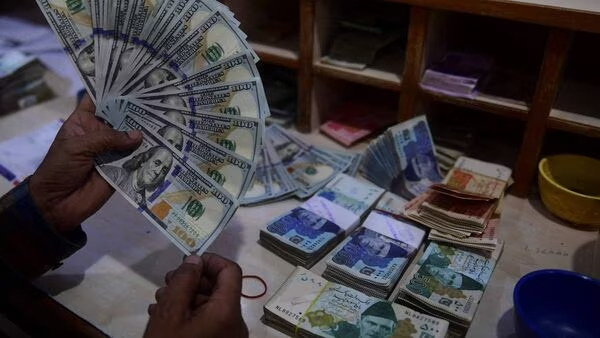A Pakistani economist has suggested that the crisis-hit country should demonetize its ₹5,000 note to come out of the ongoing economic crisis. He cited an example of India, saying that the country’s demonetization worked “tremendously well” and its “tax collections” rose after that move.
In a podcast that has gone viral on social media, Ammar Khan said that there is an ₹8 billion trillion of cash sloshing around in the Pakistan economy.
“Everything is happening in cash in Pakistan. For example, if a person is taking petrol in his vehicle, he is buying petrol which is imported in dollars…but he is paying in cash. With this, he is boosting the formal economy by paying in cash from the informal economy, without paying any taxes. This is where the problem lies,” the economist said.
“When the cash is out of the system, the same cannot be used for productive purposes,” Khan said in a podcast.
He asked why don’t the banks lend as they don’t have the cash to lend. “If these ₹8 trillion comes back to banks, you have surplus funds available which can be reallocated. So what you need to do is to demonetize ₹5,000 note.”
Meanwhile, the United States also called on Pakistan to move ahead on stalled reforms sought by the International Monetary Fund (IMF), promising technical help as the world’s fifth most populous nation weathers an economic crisis.
Pakistan signed a $6.5 billion bailout package with the International Monetary Fund in 2019 but less than half has been released as the country reneges on conditions.
Elizabeth Horst, the State Department official in charge of Pakistan said the reforms that Pakistan and the IMF agreed to are not easy, but it’s crucial that Pakistan take these actions to bring the country back to sound financial footing, avoid falling into further debt and grow Pakistan’s economy, AFP reported.
“The United States is going to continue to support Pakistan through technical engagements and assistance, particularly when it comes to encouraging Pakistan to enact policies that promote an open and fair and transparent business climate,” she said at the Wilson Center think tank.
The International Monetary Fund wants Pakistan to boost its pitifully low tax base, end tax exemptions for the export sector and raise artificially low petrol, electricity and gas prices meant to help low-income families.
The United States is the largest contributor to the IMF and has a complicated relationship with Pakistan, a partner during the Cold War and “war on terror” that nonetheless maintained ties with Afghanistan’s Taliban.
Pakistan earlier this month announced a boost of $1.3 billion from two close partners, China and the United Arab Emirates.
Source : Mint


